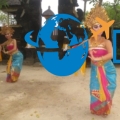Fulbright program important way to counterbalance extremism
The Arizona Republic — August 1, 2017
DENPASAR, Indonesia – The world’s most-populous nation with a Muslim majority doesn’t typically garner much attention in the United States, other than when there’s a tsunami or terrorist attack.
But it should.
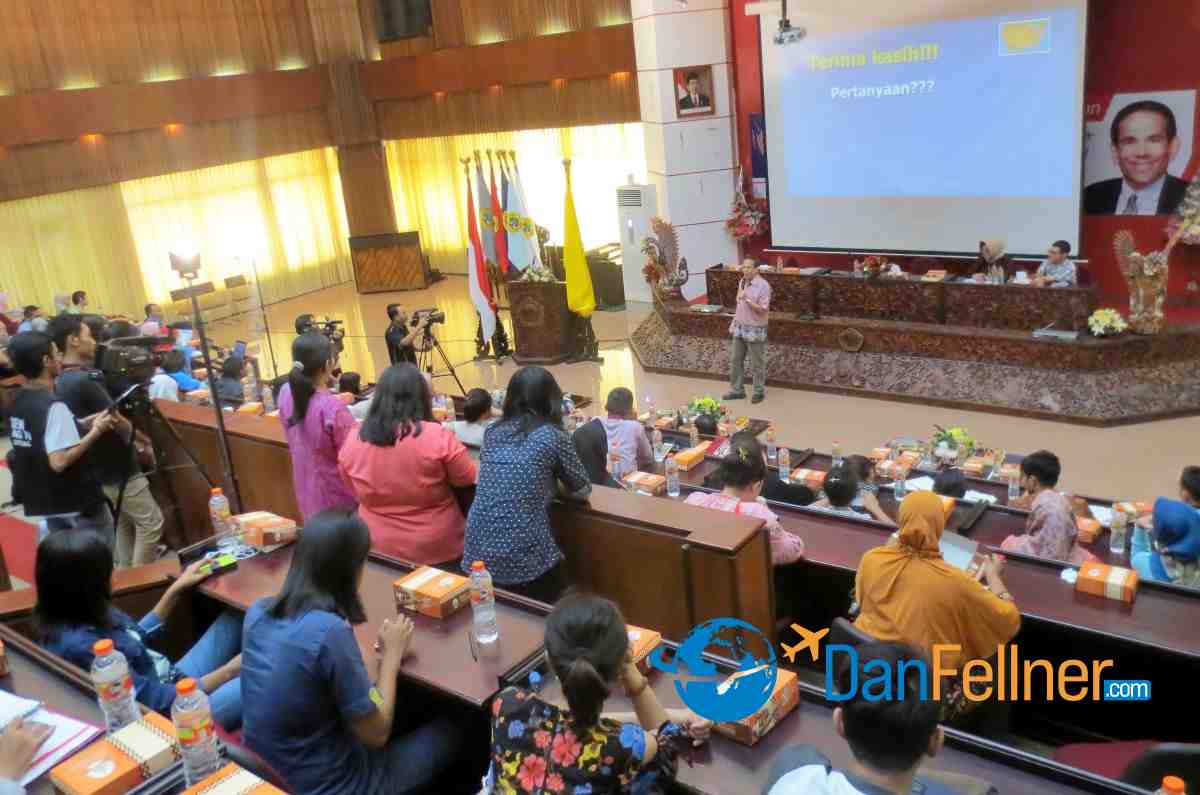
The author lecturing as a Fulbright Specialist about America’s media system at a university in Surabaya, Indonesia.
This country of more than 260 million people in Southeast Asia is vitally important to American strategic interests as it decides what type of country it wants to be in the coming decades.
Even though Indonesia has a relatively secular constitution, there are hardline Islamic elements who are pushing the country toward Sharia law. Already, a province called Aceh on the northern tip of Sumatra Island has formally adopted Sharia law. In Aceh, “offenses” such as homosexuality, adultery and selling alcohol are now punishable by public whipping.
In May, Basuki Tjahaja Purnama, a Christian with Chinese ancestry who was the former governor of Jakarta, was sentenced to two years in prison. His crime? “Blasphemy against Islam” for allegedly referencing a verse from the Quran in a heated political battle with a Muslim opponent.
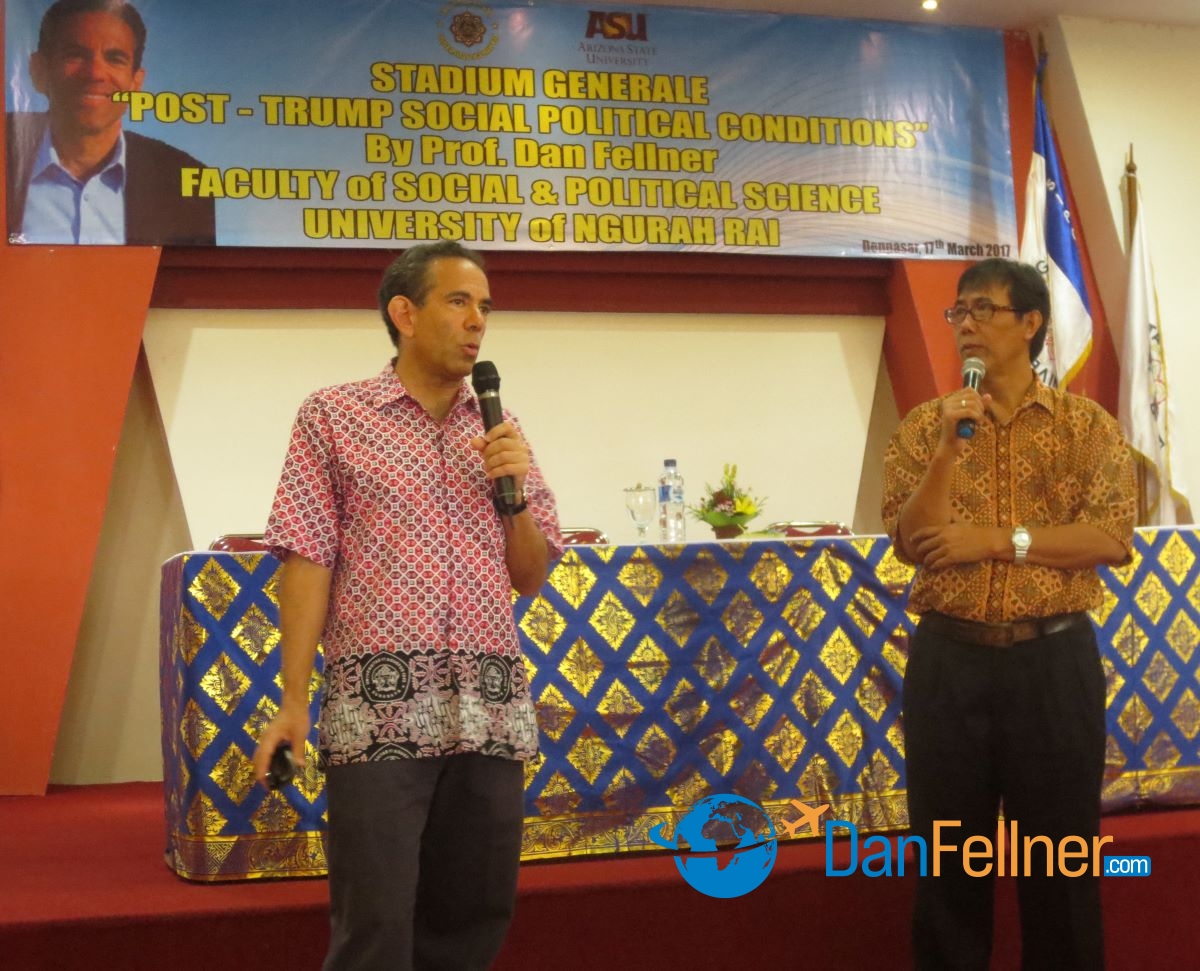
Lecturing through the Fulbright Program with the help of a translator at Ngurah Rai University in Denpasar, Bali.
Indonesia is at a crossroads and sits precariously on a line between religious extremism and a tolerant, inclusive and democratic society. The battle for the hearts and minds of Indonesians will likely be determined more by the power of persuasion than military might.
Enter the foresight of Sen. J. William Fulbright, a forward-thinking American statesman who realized the importance of diplomacy. In 1946, Sen. Fulbright created the landmark program that still bears his name. Passed unanimously by the Senate and funded by the State Department, the Fulbright program sponsors Americans and foreigners for exchanges in endeavors such as the sciences, business, academia, government and the arts.
Since the first Fulbrighters went abroad in 1948, the program has had an extraordinary impact around the world; there have been more than 250,000 Fulbright students, scholars and teachers. Each, in his or her own way, has led to the overall goal of advancing mutual understanding between the U.S. and other countries.
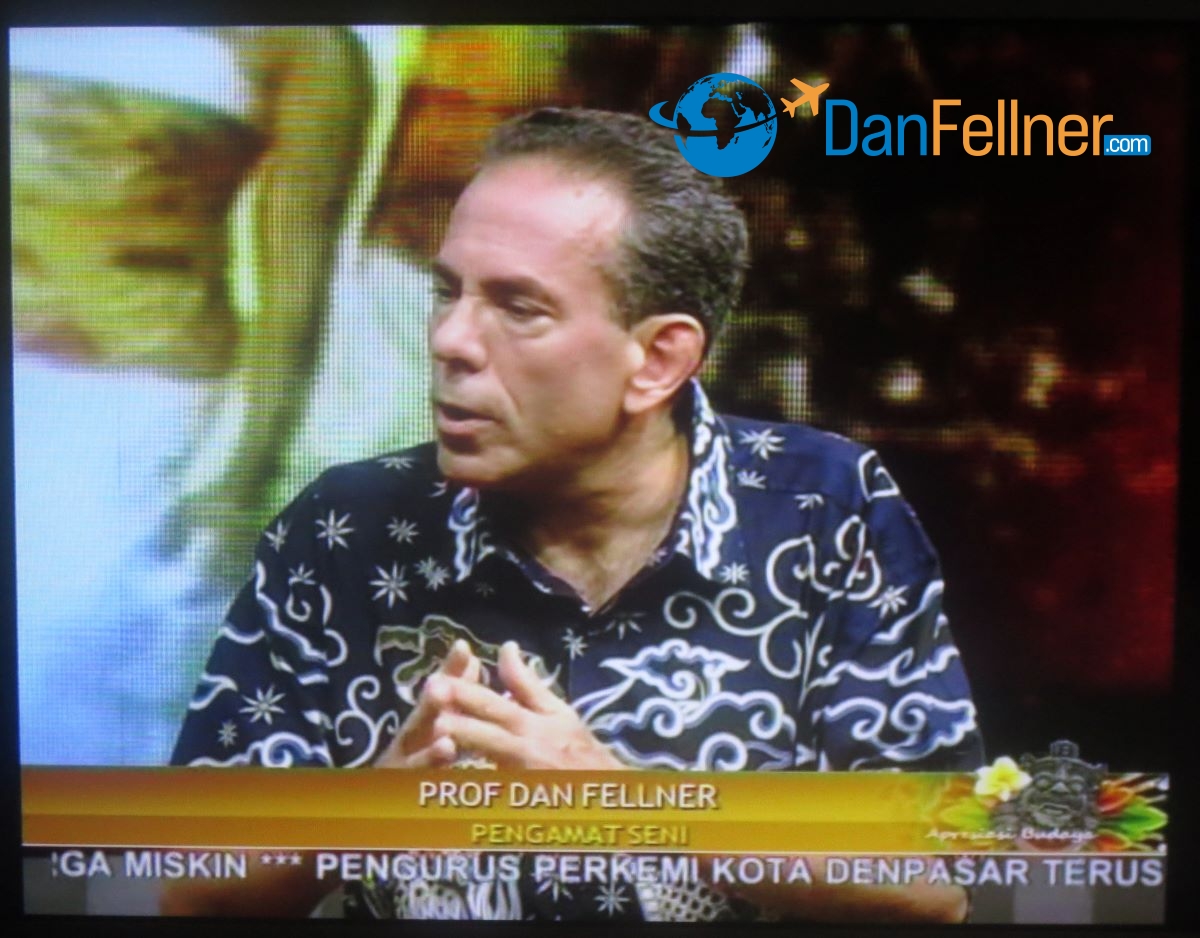
Appearing as a guest on Indonesian TV.
In my case, I had the privilege of lecturing at six different universities in Indonesia this spring. At two of the institutions, I was the first American to have lectured in person in the university’s history; both were schools more than 30 years old.
The administration, faculty and students and faculty welcomed me with open arms and were truly interested in hearing my thoughts about our political and media systems. Most of my talks were standing-room-only; one lecture at a university on the island of Java attracted more than 400 people. My lectures were widely covered by the Indonesian media.
While questions and comments from the audience indicated Indonesians didn’t always agree with American foreign policy, they did seem overwhelmingly positive toward Americans and receptive to the values I espoused — the importance of a free press and the formal separation of religion and government. I experienced similar open-mindedness to American ideals in prior Fulbright teaching stints at universities in Latvia, Lithuania, Moldova and Bulgaria.
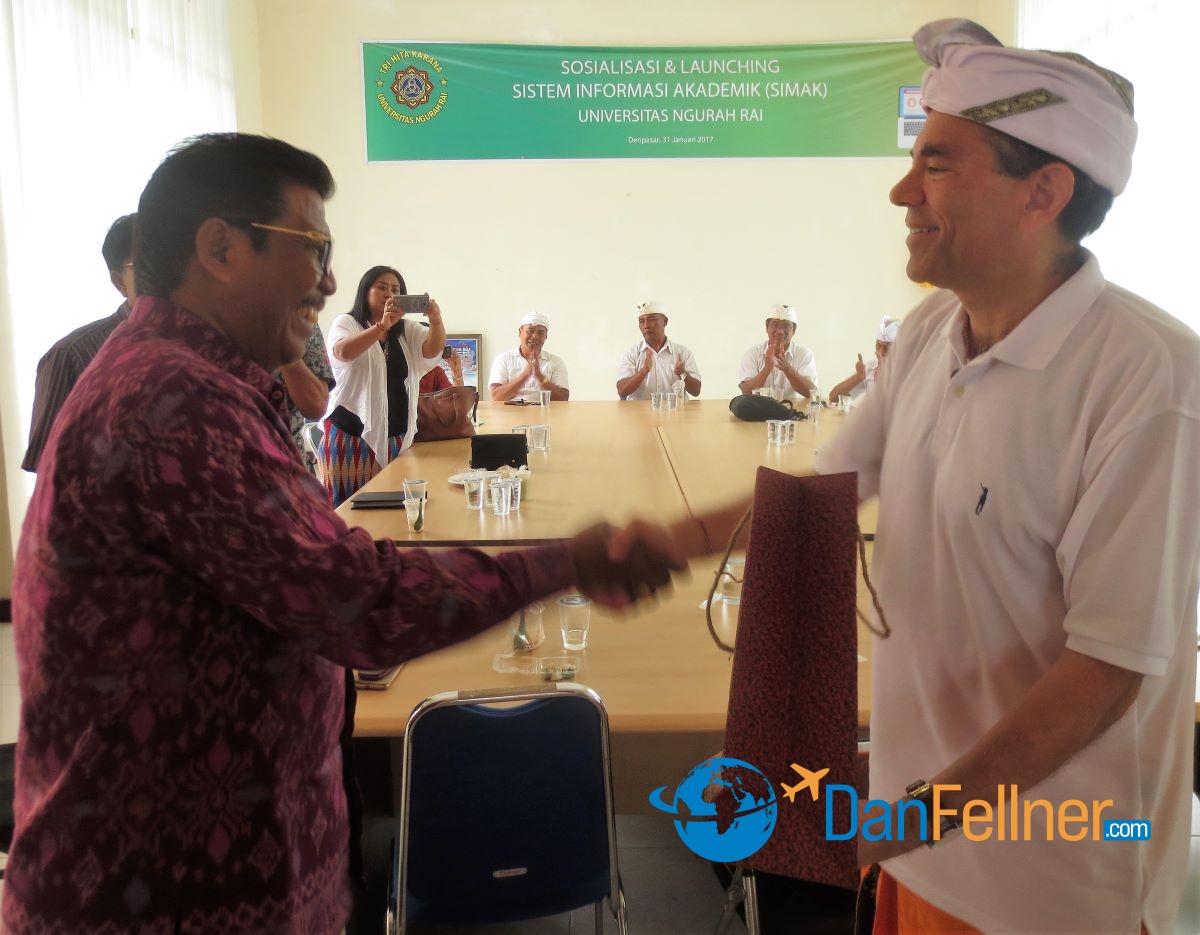
The author (right) receiving a gift from the rector of Ngurah Rai University in Bali.
The Fulbright program has faced potential budget cuts in recent years, which could cripple its ability to preserve and enhance America’s leadership abroad. This year is no different. The administration has proposed a 47 percent cut in Fulbright funding.
It’s vital to our country’s national security that Congress supports funding at the continued level of about $235 million, a relative drop-in-the-bucket compared to the money spent on our military. Indeed, the entire Fulbright budget is approximately the cost of one-third of just one B-2 Stealth Bomber.
In this uncertain world of grave threats from numerous fronts, winning hearts and minds in places where some want to do us harm has never been more important. In this respect, the Fulbright program is every bit as valuable to our national security as a tank or fighter plane.
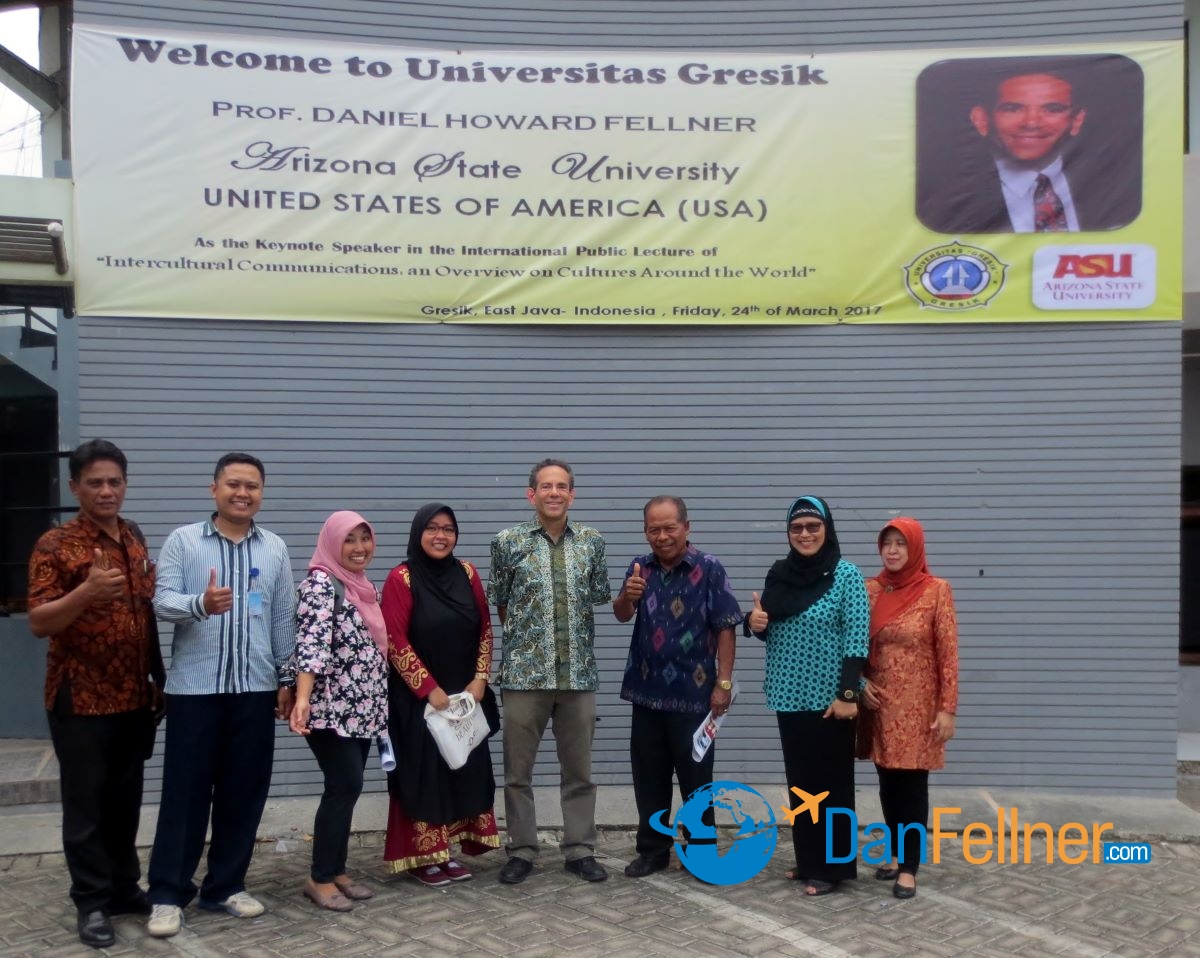
At Gresik University on the island of Java in Indonesia.
© 2017 Dan Fellner


